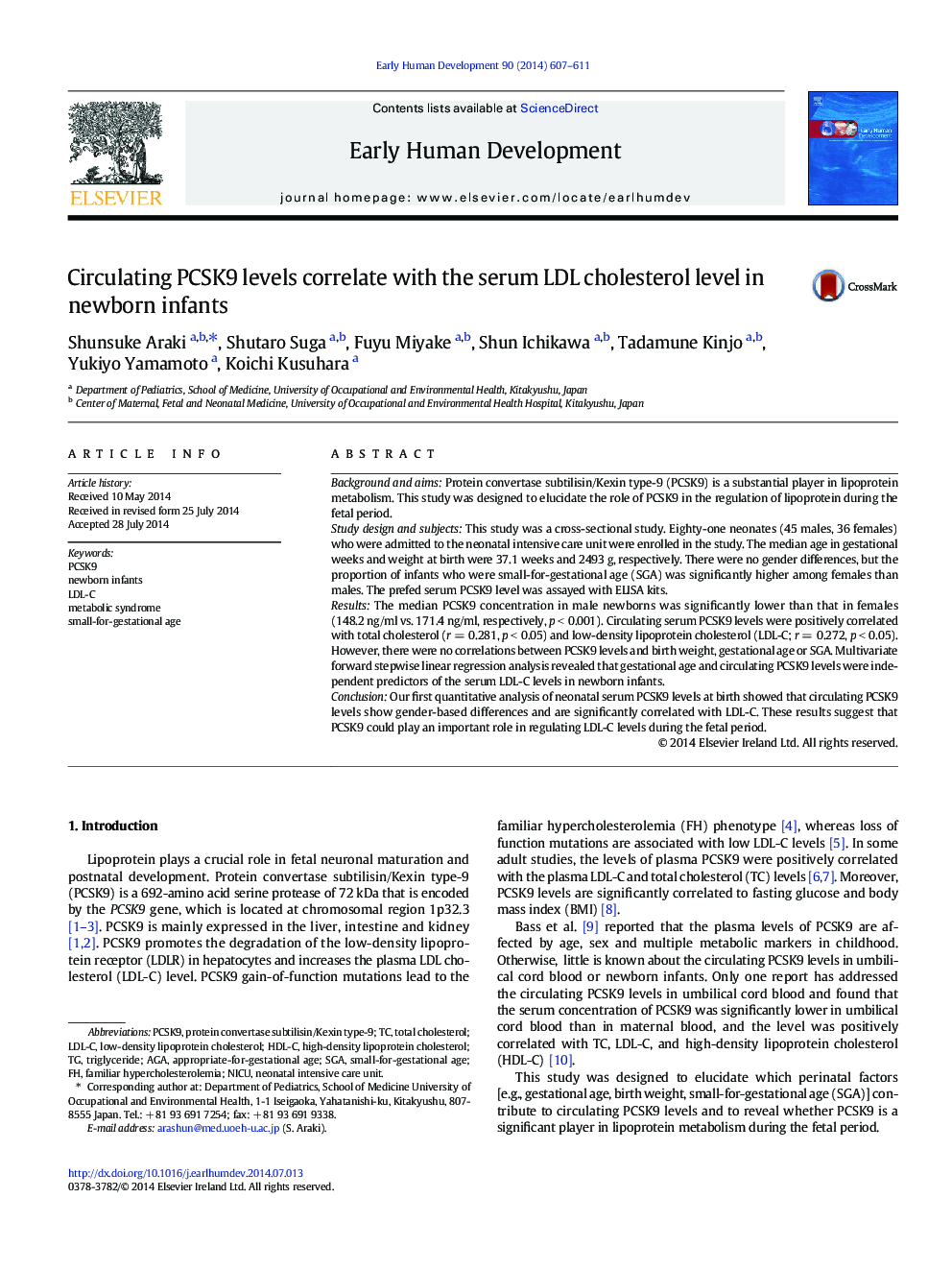| Article ID | Journal | Published Year | Pages | File Type |
|---|---|---|---|---|
| 3916637 | Early Human Development | 2014 | 5 Pages |
•We measured the prefed serum PCSK9 level of 81 infants assayed with ELISA kits.•The median PCSK9 concentration in male newborns was significantly lower than that in females.•There were no correlations between PCSK9 levels and birth weight, gestational age or small-for-gestational age.•Serum PCSK9 levels at birth showed that circulating PCSK9 levels are significantly correlated with LDL-C.
Background and aimsProtein convertase subtilisin/Kexin type-9 (PCSK9) is a substantial player in lipoprotein metabolism. This study was designed to elucidate the role of PCSK9 in the regulation of lipoprotein during the fetal period.Study design and subjectsThis study was a cross-sectional study. Eighty-one neonates (45 males, 36 females) who were admitted to the neonatal intensive care unit were enrolled in the study. The median age in gestational weeks and weight at birth were 37.1 weeks and 2493 g, respectively. There were no gender differences, but the proportion of infants who were small-for-gestational age (SGA) was significantly higher among females than males. The prefed serum PCSK9 level was assayed with ELISA kits.ResultsThe median PCSK9 concentration in male newborns was significantly lower than that in females (148.2 ng/ml vs. 171.4 ng/ml, respectively, p < 0.001). Circulating serum PCSK9 levels were positively correlated with total cholesterol (r = 0.281, p < 0.05) and low-density lipoprotein cholesterol (LDL-C; r = 0.272, p < 0.05). However, there were no correlations between PCSK9 levels and birth weight, gestational age or SGA. Multivariate forward stepwise linear regression analysis revealed that gestational age and circulating PCSK9 levels were independent predictors of the serum LDL-C levels in newborn infants.ConclusionOur first quantitative analysis of neonatal serum PCSK9 levels at birth showed that circulating PCSK9 levels show gender-based differences and are significantly correlated with LDL-C. These results suggest that PCSK9 could play an important role in regulating LDL-C levels during the fetal period.
